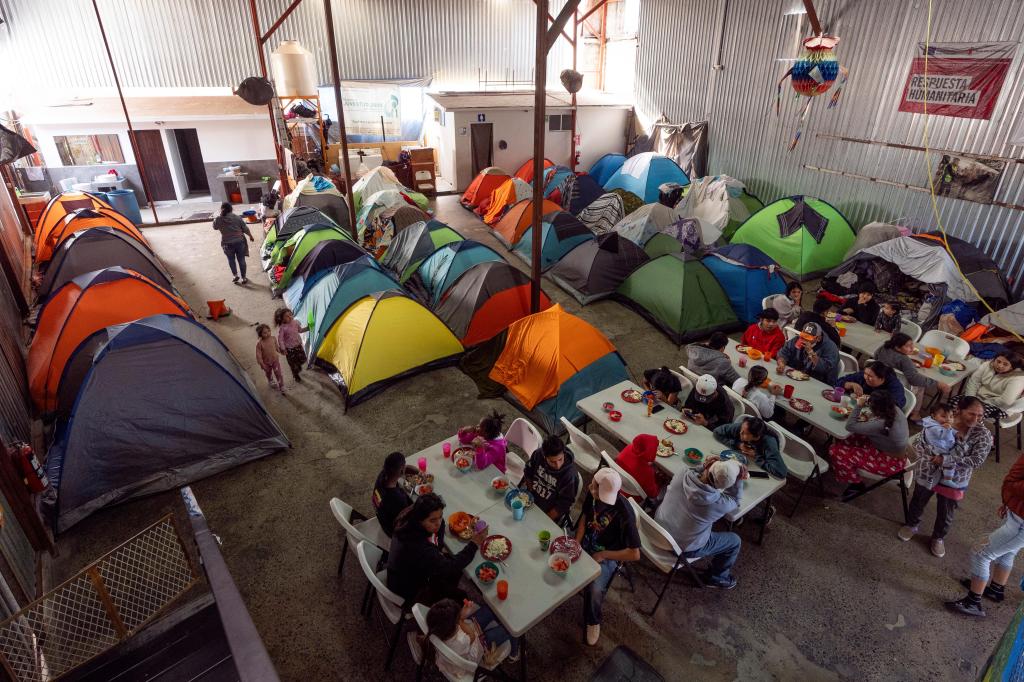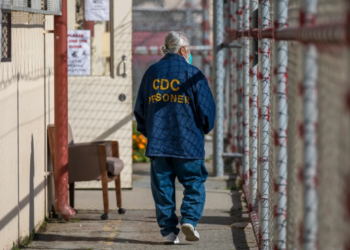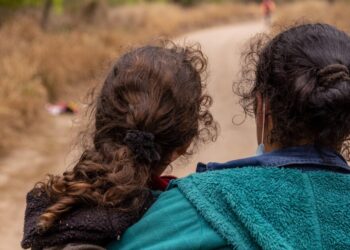By MARTÍN SILVA REY and FÉLIX MÁRQUEZ
CIUDAD JUÁREZ, Mexico (AP) — Mexico raised sprawling tents on the U.S. border Wednesday as it braced for President Donald Trump to fulfill his pledge to reverse mass migration.
In an empty lot tight against the border with El Paso, Texas, cranes lifted metal frames for tent shelters in Ciudad Juárez. Nogales, Mexico — across from Nogales, Arizona — announced that it would build shelters on soccer fields and in a gymnasium. The border cities of Matamoros and Piedras Negras have launched similar efforts.
At a border crossing in Tijuana, Mexico, on Tuesday night, one man shouted to journalists that he was being deported in a group that was arrested that morning in farm fields near Denver. Another man said he was in a group that had been brought from Oregon. Everyone carried their belongings in a small orange bag.
Neither man’s account could be independently confirmed.
The number of people deported Tuesday was lower than the daily average of about 500 last year, Mexican President Claudia Sheinbaum noted at her daily press briefing. Quickly ramping up deportations — as Trump pledges — faces logistical and financial challenges.
Beyond the tents, the Mexican government is building nine shelters in border cities to receive deportees. It has said that it would also use existing facilities in Tijuana, Ciudad Juarez and Matamoros, to take in migrants whose appointments to request asylum in the U.S. were canceled on Inauguration Day.
Sheinbaum has said that Mexico will give humanitarian aid to migrants from other countries whose asylum appointments were cancelled, as well as those sent to wait in her nation under the revived policy known as Remain in Mexico. Mexico wants to eventually and voluntarily return them to their nations, she has said.
Mexican Foreign Affairs Secretary Juan Ramón de la Fuente and new U.S. Secretary of State Marco Rubio held their first telephone conversation in their new positions.
“It was a very good…
Read the full article here







